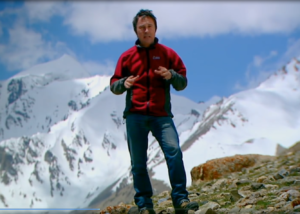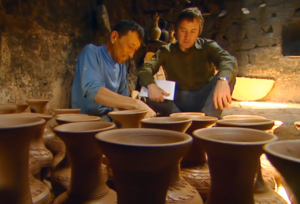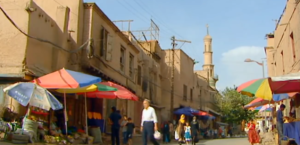 This week, Leigh Sales wrote an on-line piece, Bullying on Twitter has become unhinged. It’s time to call out the personal, sexist attacks lamenting the toxic environment of Twitter for ABC journalists. It is an extensive piece and deserves a rebuttal.
This week, Leigh Sales wrote an on-line piece, Bullying on Twitter has become unhinged. It’s time to call out the personal, sexist attacks lamenting the toxic environment of Twitter for ABC journalists. It is an extensive piece and deserves a rebuttal.
Once upon a time, journalists could spout any kind of story, remote from the audience response and, hence, ‘cocooned’ against criticism. It must have been a pleasant reality. But something happened on the way to the present – journalism was forced to grow up. New technologies radically altered the relationship. Now, audiences, for better or worse, could ‘strike’ back.
Having cut her teeth on an aging format of ‘attack dog’ journalism with no real accountability, Sales is now critical of those who might, in less pleasant ways, emulate her intensity. Woe betide the plebs revolt against the elite. Call out the guard!
As was apparent from the comments on a YouTube video of a (very long) conversation I had with my friend Daniel Dumbrill, many Australians are frustrated with and feel betrayed by the current culture dominating the ABC. What they expect is factual, nuanced and balanced journalism. What they get is David Speers SkyNews style gotcha questions on Insiders.
Really, Leigh? What might you have been expecting from an audience who, after years of having watched the ABC, now rejects its culture of bias and dishonesty?
This is no longer about perceptions of left and right. This is about standards that can be objectively measured. This is not about whether you personally had to endure “a politician [who tore] shreds off [you]”, but about whether that shred-tearing is justified by the truth of the matter. If it wasn’t justified, go tell him to fuck himself. If it was, learn from it.
No amount of anecdotal pleading can create a general ‘rule of engagement’ – face the fact that humans are deeply emotional primates with not enough constraining neurons. Read Sapolsky’s Behaviour: The Best and Worst of Us.
Then, this. Really?
It is that the bullying and harassment now comes, not in an occasional phone call from a real person, but at a furious pace on social media from politicians’ acolytes, lackeys, fans and proxies, mostly — but not always — operating anonymously. It is non-stop, personal, often vile, frequently unhinged and regularly based on fabrications. It has the effect of an angry phone call from a politician magnified thousands of times over.
A quick guide to Twitter survival. Goad the trolls. This brings them out, en masse. This is convenient for you, as now you have the comprehensive list you need to block en masse. Done.
But am I really giving this advice to a renowned journalist?
You mention David Speers. How do you explain his flippant criticism of Annastacia Palaszczuk’s success in keeping Queensland COVID free, while scant mention is made of Berejiklian’s dsytopic decisions? How long have I been in lock down? 2 days. I’ll say that again. 2 days. I’ll say it a third time, so that it can penetrate the emotional amygdalian interception and enter your frontal cortex. 2 DAYS.
The success of Queensland in maintaining normal life is unparalleled globally. And he has the nerve. The nerve. The arrogant disdain. Well might we say, “David, go fuck yourself” because that, without filter and finesse, is precisely how we feel. We are no longer the ‘shadows behind the screen’. Yes, we are living, breathing, thinking human beings who journalists choose to treat contemptuously.
You want a clear picture of the pressure you are feeling? Get a very large mirror and get ABC journalists to look into it. What I have discovered would make the producers of ABC’s past blanch, cower and cry.
My absurdly religious parents, now passed away, would quote to me “Be sure your sin will find you out.” (Numbers 32:23) Despite my fierce conviction as an atheist, I commend this to you.
Because I cannot leave this one on the cutting floor, let me expose you, again, to heat you don’t want.
One would imagine that in a democracy, restrictions on citizens’ movements and freedoms should be subject to the most rigorous scrutiny. One might also assume all citizens would welcome journalists’ questioning of such policies and indeed, view it as not merely desirable but essential. Such extreme measures may well be needed during a pandemic. There could be solid answers to every query about every policy, but the idea that such restrictions should be accepted unquestioningly, even during a crisis, is chilling.
What errant, libertarian nonsense. First, examine your historical understanding. In ancient democracies, the role of a dictator was recognised in moments of crisis. Yes, you read that right. Democracies appointed dictators. Because, as this pandemic has made perfectly clear, political maneuvering in a time of crisis is as close to fiddling while Rome burns as you will ever get.
Second, questioning policies is not looking for gotcha answers from the polity. It is something that we all do (oh, does this surprise you that we are capable of thinking too?). We don’t need your commentary. We don’t need interpretation from politicians. We don’t need presumption. What we need is reporting – plain and simple.
Thirdly, to imagine that there are ‘solid answers’ to, well, anything, is typical of the grand delusion of libertarianism. Once again, I commend Sapolsky’s Behaviour: The Best and Worst of Us to you. I challenge you to read that and then imagine what a ‘solid answer’ could possibly be like. No, that’s not rhetorical. I actually challenge you.
And, just so you know. Get a male colleague to write “Fuck off with your dog-whistling” to any prominent female on Twitter. Since you now have my email address, let me know what you discovered (Maybe warn them about what Twitter suspension looks like).
 Stephen McDonell is a China Correspondent for the BBC, after 9 years as ABC Beijing Bureau Chief. McDonell’s reporting on China has changed dramatically since he left the ABC, adopting the rank anti-China stance of his current employer, the BBC.
Stephen McDonell is a China Correspondent for the BBC, after 9 years as ABC Beijing Bureau Chief. McDonell’s reporting on China has changed dramatically since he left the ABC, adopting the rank anti-China stance of his current employer, the BBC.

